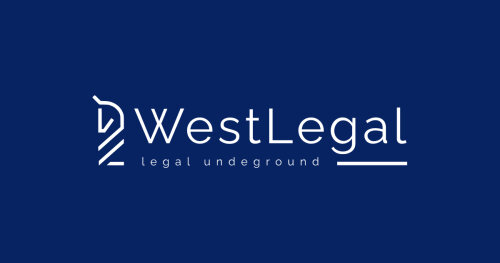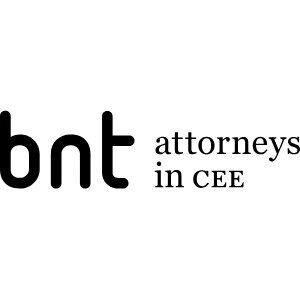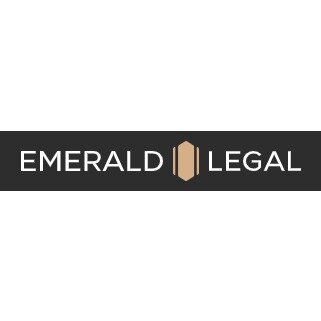Best Mining Law Lawyers in Estonia
Share your needs with us, get contacted by law firms.
Free. Takes 2 min.
Or refine your search by selecting a city:
List of the best lawyers in Estonia
About Mining Law in Estonia
Mining law in Estonia governs the exploration, extraction, use, and reclamation of mineral resources found within the country. Estonia is rich in oil shale, limestone, peat, and other mineral resources, which play a significant role in the country's energy production and construction sectors. The legal framework for mining is designed to balance economic interests with environmental protection and sustainable development. The main aspects of Estonian mining law include the regulation of mineral rights, licensing, environmental protection, land use, and the responsibilities of mining operators.
Why You May Need a Lawyer
There are several scenarios where individuals or companies may require legal assistance related to mining law in Estonia. These include, but are not limited to, applying for mineral permits or licenses, negotiating land access agreements, ensuring compliance with environmental regulations, resolving disputes over mining rights or land use, addressing liability for environmental damage, participating in public consultations, and handling issues related to the closure or reclamation of mining sites. Legal advice is often essential to navigate the complexities of mining regulations, ensure lawful operations, and protect your interests, whether you are a landowner, mining operator, or affected community member.
Local Laws Overview
The key legislative act governing mining activities in Estonia is the Earth’s Crust Act. This law regulates the exploration, extraction, and conservation of mineral resources. Some of the key aspects include:
- Licensing: Mining companies must obtain exploration permits and extraction licenses from the Environmental Board.
- Environmental Impact Assessment (EIA): Significant mining projects require an EIA to assess potential impacts on nature, groundwater, and local communities.
- Land Ownership and Use: Agreements between landowners and mining companies are often required. Expropriation can be considered in specific cases for state interests.
- Rehabilitation and Closure: Mining operators are responsible for site rehabilitation and restoration once extraction is complete.
- Supervision and Compliance: Government agencies oversee mining activities to ensure they meet legal and environmental standards.
- Public Participation: Public consultations are mandatory for many mining projects, particularly those with significant environmental impact.
Frequently Asked Questions
What minerals are commonly mined in Estonia?
The main minerals mined in Estonia are oil shale, limestone, peat, sand, and gravel. Oil shale is the most commercially significant, mainly used for energy production.
Who can own mineral resources in Estonia?
In Estonia, mineral resources are owned by the state. Private parties may acquire the right to explore or extract minerals through permits and licenses, but the ownership remains with the state.
How do I apply for a mining permit?
You must submit an application to the Environmental Board. The application process includes submitting technical documentation, conducting environmental assessments, and possibly participating in public consultations.
What environmental requirements must mining operators meet?
Operators must conduct environmental impact assessments for substantial projects, implement measures to prevent pollution, and rehabilitate sites after extraction. Strict rules exist to protect groundwater, air quality, and biodiversity.
Can landowners stop mining on their land?
Landowners have rights to negotiate terms with mining companies, but in cases of significant public interest and following legal procedures, the state can grant extraction rights even against the landowner’s wishes.
What happens when a mining site is closed?
The operator is responsible for rehabilitating the site, which may include restoring vegetation, stabilizing land, and ensuring the area is safe and suitable for future use. Detailed reclamation plans are reviewed by authorities before approval.
Are there penalties for mining without a permit?
Yes, unauthorized mining activities can result in administrative penalties, fines, and criminal charges. Authorities may halt operations and require full restoration of the site.
What is the role of the Environmental Board?
The Environmental Board supervises the application of mining law, issues permits, monitors compliance, and enforces environmental protection measures.
How long does it take to obtain a mining license?
The time frame depends on the size and impact of the proposed project. Simple projects may be approved in a few months, while complex projects requiring full environmental assessments and public consultations can take over a year.
Can foreigners participate in mining activities in Estonia?
Yes, foreign individuals or companies can participate in mining activities as long as they comply with all Estonian laws and obtain the necessary permits and licenses.
Additional Resources
For further information and assistance related to mining law in Estonia, the following resources may be helpful:
- Estonian Environmental Board - Responsible for issuing permits and supervising mining activities.
- Estonian Ministry of the Environment - Provides policy guidance and oversight of mining regulations.
- Estonian Chamber of Commerce and Industry - Supports business operations, including those in the mining sector.
- Legal aid organizations and law firms specializing in mining and environmental law.
- University of Tartu and Tallinn University of Technology - Institutions offering resources and expertise in earth sciences and mining legislation.
Next Steps
If you require legal assistance regarding mining law in Estonia, consider the following steps:
- Identify your specific issue or concern, such as permit application, land rights, or compliance challenges.
- Gather relevant documents, such as land records, existing permits, contracts, and correspondence with authorities.
- Consult with a lawyer experienced in Estonian mining or environmental law to evaluate your situation and provide tailored guidance.
- Contact relevant governmental bodies, such as the Environmental Board, for procedural support or clarification on regulations.
- Stay informed about changes in mining regulations and participate in public consultations if your interests may be affected.
By taking these steps, you can ensure you comply with Estonian mining law, protect your interests, and contribute to responsible resource management.
Lawzana helps you find the best lawyers and law firms in Estonia through a curated and pre-screened list of qualified legal professionals. Our platform offers rankings and detailed profiles of attorneys and law firms, allowing you to compare based on practice areas, including Mining Law, experience, and client feedback.
Each profile includes a description of the firm's areas of practice, client reviews, team members and partners, year of establishment, spoken languages, office locations, contact information, social media presence, and any published articles or resources. Most firms on our platform speak English and are experienced in both local and international legal matters.
Get a quote from top-rated law firms in Estonia — quickly, securely, and without unnecessary hassle.
Disclaimer:
The information provided on this page is for general informational purposes only and does not constitute legal advice. While we strive to ensure the accuracy and relevance of the content, legal information may change over time, and interpretations of the law can vary. You should always consult with a qualified legal professional for advice specific to your situation.
We disclaim all liability for actions taken or not taken based on the content of this page. If you believe any information is incorrect or outdated, please contact us, and we will review and update it where appropriate.
Browse mining law law firms by city in Estonia
Refine your search by selecting a city.
















